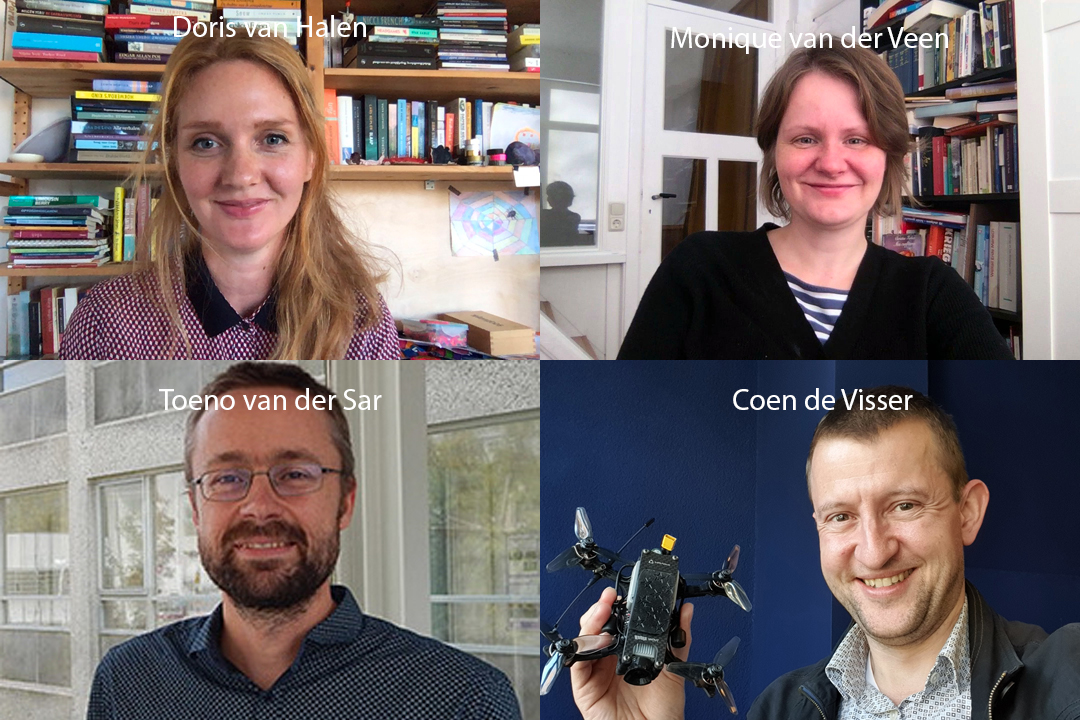Research funder NWO has awarded 81 experienced researchers a grant of EUR 800,000 to set up their own research. Four of them are from TU Delft.
(Foto: Private collections, editing Delta)
A Vidi grant funds researchers for five years. There are recipients in all kinds of disciplines, from the humanities to physics. This year, only 16% of the applicants were awarded a Vidi grant. Women came through the sieve a little more often than men: 17% against 15%. Most grants went to the University of Amsterdam, which received eight. The Universities of Nijmegen, Wageningen and Leiden each received seven.
TU Delft follows with four Vidis for Dr Doris van Halem (CEG), Dr Toeno van der Sar (Kavli, QuTech, AS) and Dr Coen de Visser (AE). The fourth is ) Dr Monique van der Veen (AS), who is also a Delta columnist. They each wrote a public description of their research.
What do they do?
Doris van Halem: Air as the driving force for drinking water treatment
Worldwide an estimated 140 million people do not have access to safe drinking water due to arsenic contamination of their groundwater. The researchers will study how to remove arsenic by the postponed addition of oxygen. This new finding involving controlled biological-chemical treatment processes will be used to develop sustainable treatment technologies.
Toeno van der Sar: How do electrons move through quantum materials?
Recently discovered materials with special quantum properties offer unprecedented opportunities for the development of new nanoelectronics. How electrical current moves through these ‘quantum materials’ is at the heart of their functionality. This research will use a diamond sensor to locally image this current at nanometre resolution.
Monique van der Veen: ‘Nano heaters’ to unravel catalytic reactions with ultimate time resolution
The Chinese character for a catalyst is a marriage broker, as it decreases the energy for two molecules to react. Many intermediates in the reaction process are too short-lived to detect. Using laser pulses to heat ‘nano heaters’ extremely fast will jumpstart the reaction. That will allow short-lived intermediates to be detected stroboscopically.
Coen de Visser: Forecasting safe operating envelopes for autonomous robots
In the near future, robots will play an important role in our daily lives, but only if they are safe. Researchers will develop a new system that gives robots an awareness of their physical limitations, even after failures. This will allow robots to safely recover from dangerous situations.
HOP/Jos Wassink
Do you have a question or comment about this article?
j.w.wassink@tudelft.nl


Comments are closed.